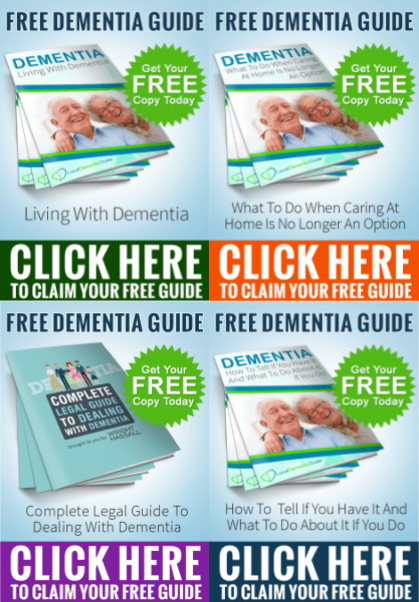
Explore a comprehensive guide on complementary therapies for dementia, focusing on alternative treatments for patients with dementia. Discover a range of innovative and evidence-based alternative therapies designed to enhance the well-being and quality of life for individuals living with dementia.
From music and art therapy to aromatherapy and reminiscence therapy, delve into the diverse array of approaches that offer new possibilities for symptom management and cognitive stimulation. Learn how these alternative therapies can provide holistic support, address emotional needs, and promote a sense of connection and engagement. Discover empowering options for caregivers and families seeking to optimize the care and support for their loved ones with dementia.
Using Alternative Therapies for Dementia
Explore a range of non-conventional approaches, such as music therapy, art therapy, aromatherapy, and reminiscence therapy, which can stimulate cognition, evoke positive emotions, and foster social connections.
These alternative therapies complement traditional care, providing personalized interventions that address the holistic needs of individuals with dementia, promoting quality of life and overall wellness.
- Music Therapy - Music therapy is a powerful and widely recognized complementary therapy for individuals with dementia. It harnesses the therapeutic potential of music to address various cognitive, emotional, and social needs. By incorporating personalized music experiences, music therapy can stimulate memory recall, evoke positive emotions, reduce agitation, and enhance overall well-being. Trained music therapists engage individuals with dementia in activities such as singing, playing instruments, or simply listening to music tailored to their preferences. These experiences can improve mood, promote relaxation, encourage social interaction, and even facilitate communication when verbal abilities decline. Music therapy offers a non-pharmacological and enjoyable approach that complements traditional care, providing individuals with dementia a meaningful and engaging avenue for self-expression and connection.
- Art Therapy - This is a valuable and creative complementary therapy that can benefit individuals living with dementia. By engaging in art-making activities, such as painting, drawing, or sculpting, art therapy provides a non-verbal means of self-expression and communication. It allows individuals with dementia to tap into their creativity, evoke memories, and express emotions that may be difficult to convey verbally. Art therapy can enhance cognitive abilities, improve mood, reduce anxiety and agitation, and promote a sense of accomplishment and self-esteem. With the guidance of trained art therapists, individuals with dementia can engage in a meaningful and therapeutic process, fostering a sense of empowerment and well-being. Art therapy offers a unique and person-centered approach that complements traditional care, allowing individuals with dementia to explore their artistic abilities and connect with their inner selves in a supportive and enriching environment.
- Aromatherapy - An alternative medicine therapy, may be used as a complementary approach for individuals with dementia. It involves the use of essential oils derived from plants to promote well-being and support emotional and cognitive health. Through inhalation or gentle application on the skin, these aromatic oils can evoke positive emotions, reduce anxiety and agitation, and enhance relaxation. Certain essential oils, such as lavender or lemon balm, have shown potential in improving sleep quality and reducing behavioral symptoms associated with dementia. Aromatherapy offers a non-invasive and sensory-rich intervention that complements traditional care, providing individuals with dementia with a soothing and therapeutic experience.
- Reminiscence Therapy - Reminiscence therapy is a complementary and alternative therapy commonly used for people with Alzheimer's disease. It involves engaging individuals in conversations and activities that evoke memories from their past, fostering a sense of connection and well-being. Through storytelling, looking at photographs, or listening to familiar music, reminiscence therapy can stimulate cognitive function, improve mood, and enhance social interaction. By tapping into long-term memories, individuals with Alzheimer's can find comfort, validation, and a renewed sense of self. Reminiscence therapy offers a person-centered and meaningful approach that complements traditional care, providing a therapeutic and supportive environment for individuals with Alzheimer's.
- Pet Therapy - Often used to treat individuals with dementia, involves interactions with trained animals to provide emotional support and enhance well-being. Pets, such as therapy dogs or cats, can have a profound impact in care homes for people with dementia. These gentle and friendly animals can reduce feelings of loneliness, anxiety, and agitation while promoting social engagement and a sense of comfort. Pet therapy offers a unique and non-pharmacological approach to complement traditional care, creating opportunities for meaningful connections and moments of joy. The presence of therapy animals in care homes can improve the overall quality of life for individuals with dementia, fostering a positive and nurturing environment.
Complementary Therapies for Dementia Alternative Treatments for Patients with Dementia
FAQ | ANSWERS |
|---|---|
1. What is dementia? | Dementia is a general term for a decline in mental ability that is severe enough to interfere with daily life. It is often accompanied by memory loss, difficulty communicating, and changes in mood or behaviour. |
2. What is complementary therapy? | Complementary therapy is a form of treatment that is used alongside conventional medicine to improve overall health and wellbeing. Examples of complementary therapies include massage, acupuncture, and aromatherapy. |
3. What are some alternative treatments for people with dementia? | Alternative treatments for people with dementia include complementary and alternative medicine (CAM) such as aromatherapy, acupuncture, and music therapy. These treatments may help to reduce agitation and improve overall quality of life. |
4. How can complementary therapies benefit patients with Alzheimer's disease? | Studies have demonstrated that complementary therapies such as massage and aromatherapy can help to reduce agitation and improve sleep in patients with Alzheimer's disease. These therapies can also promote relaxation and reduce anxiety. |
5. What is aromatherapy and how is it used to treat dementia? | Aromatherapy is the use of essential oils to promote physical and emotional wellbeing. It has been used to treat dementia by helping to reduce agitation and improve sleep. Essential oils such as lavender and peppermint have been shown to have a calming effect on patients with dementia. |
6. What evidence is there to support the use of alternative therapies in dementia care? | There is some evidence to suggest that complementary and alternative therapies such as acupuncture and music therapy can help to reduce anxiety and depression in patients with dementia. However, more research is needed to establish their effectiveness and safety. |
7. What is a randomized controlled trial and why is it important for evaluating the effectiveness of complementary therapies in dementia care? | A randomized controlled trial is a type of scientific study in which participants are randomly assigned to receive either a treatment or a placebo. It is important for evaluating the effectiveness of complementary therapies in dementia care because it helps. |
Seeking Support and Further Information
If you are interested in exploring complementary therapies for dementia or seeking further information, it is important to reach out to qualified professionals who specialize in these therapies. Here are some steps you can take:
Consult with healthcare professionals: Start by discussing your interest in complementary therapies with the healthcare professionals involved in the care of the individual with dementia. They can provide guidance, recommendations, and potential referrals to certified practitioners or therapists in your area.
Research reputable organizations: Look for reputable organizations that specialize in dementia care and complementary therapies. They often provide resources, information, and directories of certified practitioners or therapists. Examples of such organizations include national dementia associations, complementary therapy associations, or local support groups.
Seek out trained practitioners: When considering a specific complementary therapy, ensure that practitioners or therapists have received appropriate training and certification in their respective fields. Look for qualifications, experience working with individuals with dementia, and adherence to ethical guidelines.
Request testimonials or references: If possible, ask for testimonials or references from other individuals or families who have utilized complementary therapies for dementia. Their experiences and insights can provide valuable information and help inform your decision-making process.
Attend educational events and workshops: Many organizations and practitioners offer educational events, workshops, or seminars on complementary therapies for dementia. Participating in these can deepen your understanding of the therapies, their benefits, and how they can be integrated into a comprehensive care plan.
Remember, it is crucial to involve healthcare professionals in the decision-making process, as they can provide holistic guidance and ensure that the chosen complementary therapies align with the individual's overall care plan and medical needs.

Check out our Dementia Guide resources for FREE
We have some great practical and informative FREE GUIDES to support you on your journey with dementia
